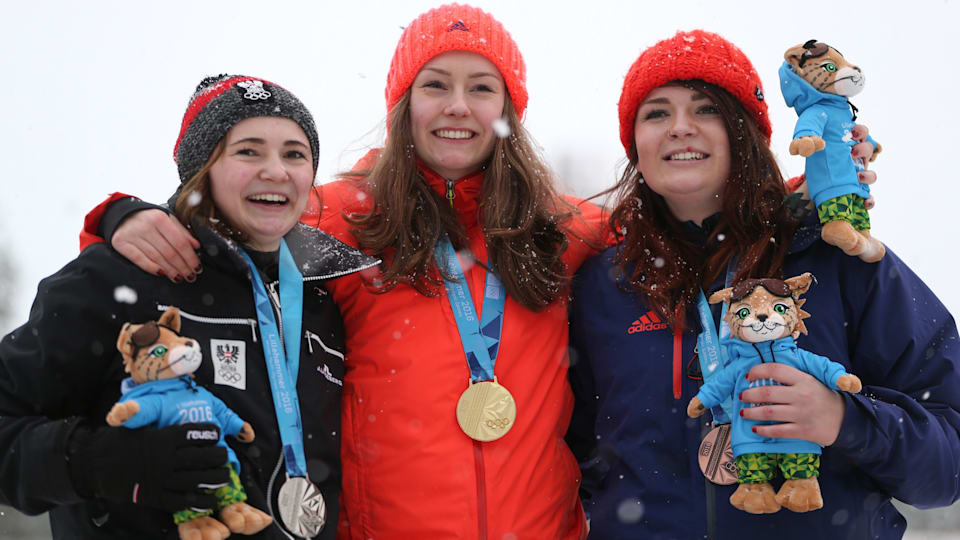
Germany’s Laura Nolte and Jonas Jannusch each took gold in the Youth Olympic debut of the monobob.
Croatia’s Karla Sola stands at the top of the track with her hands firmly holding the handles on the back of the bobsled. It is snowing persistently for the first time at the Lillehammer 2016 Winter Youth Olympic Games and she knows hers is going to be a tougher run as a result.
What is different from Olympic bobsleigh competitions of the past, is that the 17-year-old Sola is facing it all alone in a monobob, a discipline making its debut at a major Games.
When two or four-strong bob crews get ready to race in the starting hut, there is usually plenty of shouting, complete with back and thigh slapping – teams psyching themselves up for a challenging ride at more than 100kmh.
On Saturday afternoon there is an unusual nervous silence as Sola concentrates alone. The officials helping her line up the bob finally break it. “Big push, Karla,” one shouts, and she sprints off, pushing the bob down the track as fast as she can before jumping in to drive.
Officials from the International Bobsleigh and Tobogganing Federation (FIBT) are experimenting with monobob in Lillehammer as they believe the need for only one competitor can help them take the sport to many more countries.
By making all the pilots share the same sleds the FIBT also believe they will create a more level playing field. “This is the second season we have been racing with monobobs, but the first time at a major event,” FIBT President Ivo Ferriani said as he stood in the starting hut. “I am sure it will help to develop a young generation because it makes it easier for them to approach the sport, it is sustainable in cost and it’s safe. You don’t need someone behind you to drive. You do not focus on the material [technology]. You focus on the driving and the athletic skill.”
As an illustration of that, the monobob, which Sola drove to the 15th and slowest time in the first run (1:00.87 minutes), is lined up for Austrian Mercedes Schulte, who clocked the fastest heat one time of 58.66, for the second and decisive run. That is the equivalent of the slowest car in a race prix being handed to the Championship leader for the next race.
The competition came down to a tight finish, with Germany’s Laura Nolte taking the gold with an aggregate 1:57.41 seconds, 0.24 ahead of Austrian Mercedes Schulte (1:57.65) with Great Britain’s Kelsea Purchall 0.02 further back in the bronze medal position.
“All the monobobs are quite similar. By giving the bob that was last in the first run to the person in first place, you prove that it wasn’t the sled’s fault,” Purchall said. “It is a really fair process.”
The men’s race was also extremely close, with Germany’s Jonas Jannusch taking the gold by just 0.15 seconds over the two runs with an aggregate 1:54.29. Russia’s Maksim Ivanov won silver (1:54.44) ahead of Norway’s Kristian Olsen (1:54.53).
Written by YIS / IOC Adrian Warner
Adrian Warner is a reporter for the Lillehammer Youth Information Service ‘YIS’. He has covered 13 Olympic Games in a career that has taken in Reuters, the London Evening Standard and the BBC.
